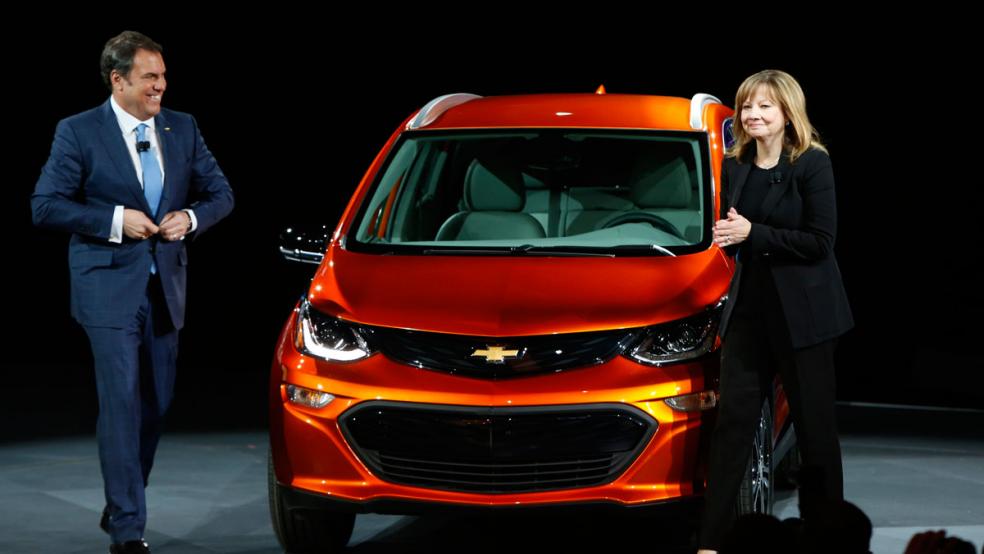Sometimes it's a burden to be first. Tesla is the little car company that could. CEO Elon Musk and his team, building on the work of the car maker's original founders, have put electric cars decisively on the map.
Major automakers have taken note and have now moved beyond short-range electric vehicles to EVs with more Tesla-like range.
Related: Elon Musk Outlines His Master Plan for Tesla, but Can It Be Done?
Now the most prominent of these newcomers, Chevrolet's Bolt, will arrive later this year with a much beefier range rating than previously expected.
Chevy announced on Tuesday that the Bolt will achieve an EPA-estimated 238 miles on a charge. That beats the cheapest Tesla Model S sedan, the $66,000 base 60-kilowatt-hour version, by about 20 miles. And the Bolt, expected to price at around $37,500 before a $7,500 federal tax credit drops the sticker to $30,000, is substantially more affordable.
Tesla of course has its own mass-market Model 3 scheduled for initial deliveries in 2017 — but with a speculated range of only 200 miles on a charge. And this is where Tesla's difficult position relative to the big, old, slow-moving traditional auto industry becomes glaringly apparent. Tesla builds great, groundbreaking cars. But it can't build them fast enough. There's abundant skepticism about whether the company will be able to hit Musk's bold target of 500,000 annual deliveries in 2018, given that Tesla is likely to struggle to make 80,000 to 90,000 in 2016
Chevy is part of General Motors, and when GM CEO Mary Barra decided to go hard with the Bolt, we got to see how a very large car company with over a century of manufacturing expertise tackles a new market: the Bolt was announced in 2015, revealed at the Consumer Electronics Show in Las Vegas in January of this year, and is going into production in October, with deliveries slated from later this year.
Related: Tesla Is Losing Its Shine for Investors
Tesla is vulnerable to this kind of automotive October surprise. Did GM know a long time ago that it could get more than 200 miles on a charge from the Bolt's battery? I wouldn't be surprised.
Comparison between the Bolt and the Model 3 have abounded. The Model 3, revealed in March, is a lot sexier — a mashup of the Model S and the Model X SUV, and a flexible engineering platform to boot, off which Tesla can build a compact SUV, a new sports car, and perhaps even a pickup truck.
But discussion about the ranges of the two vehicles have centered on a 200-mile number. Now that Chevy has said that the Bolt will do almost 240, the ball is back in Tesla's court to make sure that the Model 3 doesn't lose out on that critical spec.
It should be doable. But it also has the potential to be expensive. The biggest cost of an electric car is the batteries. GM can afford to sell hundreds of thousands of Bolt's at a loss to grab market share. Tesla can't do the same with the Model 3, not least because profits on such a modestly scaled vehicle aren't going to very big, relatively to the luxury grade Model S and Model X.
A 238-mile range might not seem like that huge a deal. But for Tesla, it's one of the most daunting challenges that has yet been thrown down by a traditional car company.
This article originally appeared on Business Insider. Read more from Business Insider:




